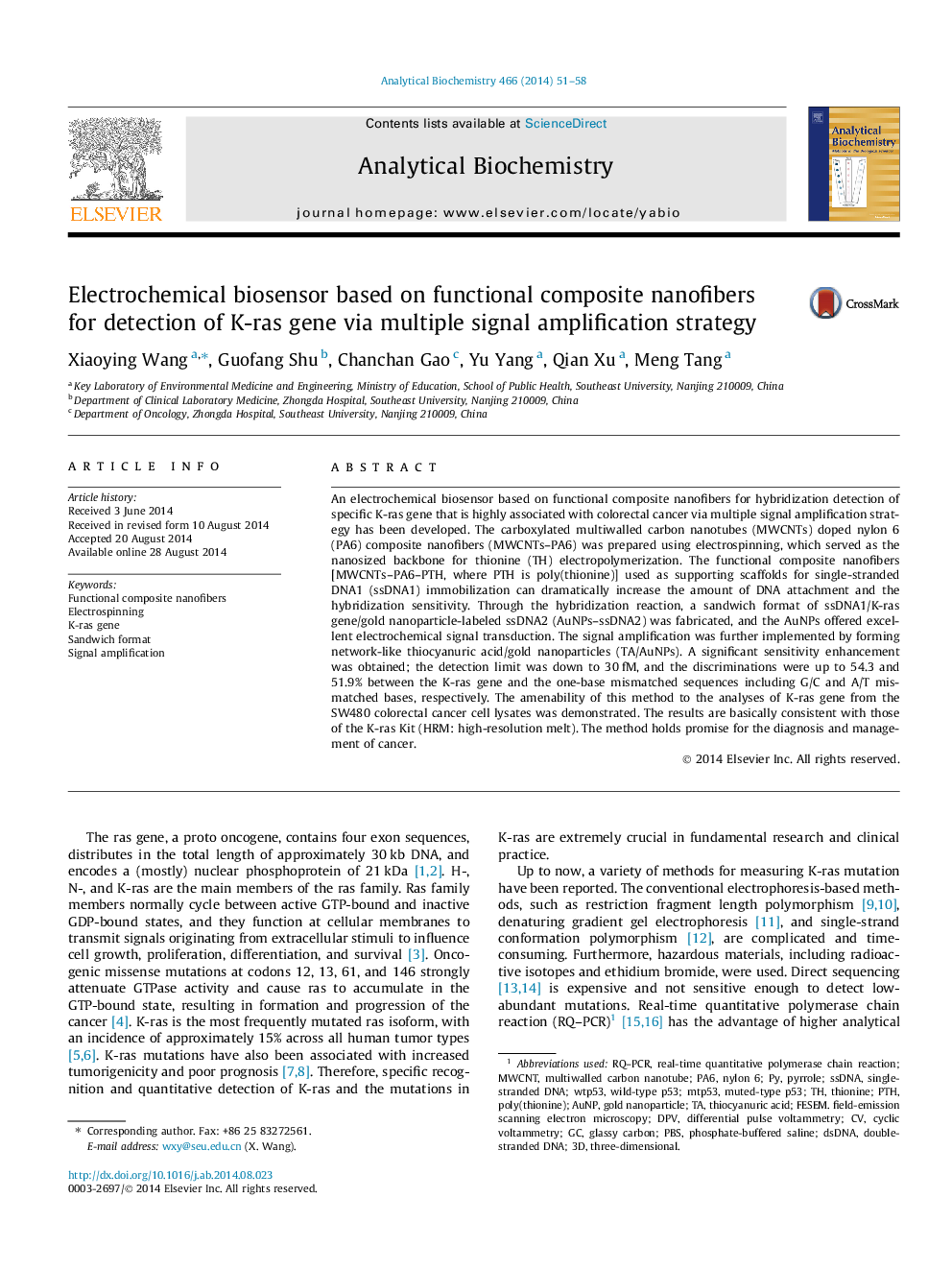| Article ID | Journal | Published Year | Pages | File Type |
|---|---|---|---|---|
| 7558916 | Analytical Biochemistry | 2014 | 8 Pages |
Abstract
An electrochemical biosensor based on functional composite nanofibers for hybridization detection of specific K-ras gene that is highly associated with colorectal cancer via multiple signal amplification strategy has been developed. The carboxylated multiwalled carbon nanotubes (MWCNTs) doped nylon 6 (PA6) composite nanofibers (MWCNTs-PA6) was prepared using electrospinning, which served as the nanosized backbone for thionine (TH) electropolymerization. The functional composite nanofibers [MWCNTs-PA6-PTH, where PTH is poly(thionine)] used as supporting scaffolds for single-stranded DNA1 (ssDNA1) immobilization can dramatically increase the amount of DNA attachment and the hybridization sensitivity. Through the hybridization reaction, a sandwich format of ssDNA1/K-ras gene/gold nanoparticle-labeled ssDNA2 (AuNPs-ssDNA2) was fabricated, and the AuNPs offered excellent electrochemical signal transduction. The signal amplification was further implemented by forming network-like thiocyanuric acid/gold nanoparticles (TA/AuNPs). A significant sensitivity enhancement was obtained; the detection limit was down to 30Â fM, and the discriminations were up to 54.3 and 51.9% between the K-ras gene and the one-base mismatched sequences including G/C and A/T mismatched bases, respectively. The amenability of this method to the analyses of K-ras gene from the SW480 colorectal cancer cell lysates was demonstrated. The results are basically consistent with those of the K-ras Kit (HRM: high-resolution melt). The method holds promise for the diagnosis and management of cancer.
Related Topics
Physical Sciences and Engineering
Chemistry
Analytical Chemistry
Authors
Xiaoying Wang, Guofang Shu, Chanchan Gao, Yu Yang, Qian Xu, Meng Tang,
